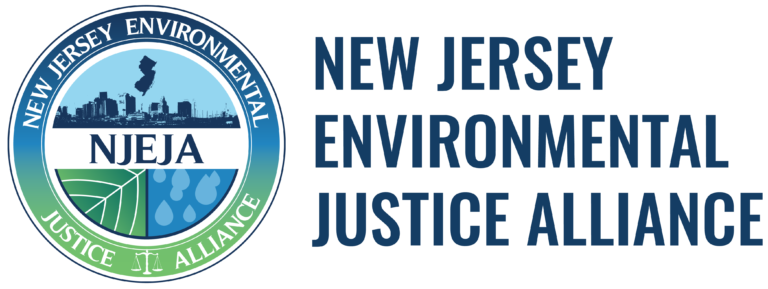
FOR IMMEDIATE RELEASE: July 9, 2024
Press Contact
Melissa Miles, Executive Director | melissa@njeja.org
NJEJA Calls Upon PVSC To Reject Power Plant Proposal: New Jersey Residents Should Have Clean Air Regardless of Zip Code
Newark, New Jersey – The New Jersey Environmental Justice Alliance, a statewide organization dedicated to reducing and eliminating environmental injustices in communities of color and low-income communities, opposes Governor Murphy’s decision to approve a fourth power plant in the City of Newark and calls upon the Passaic Valley Sewerage Commissioners to reject the proposal.
The approval of the plan, which will burn natural gas, only extends New Jersey’s reliance on fossil fuels and directly contradicts the state’s clean energy goals. Furthermore, the impact of a fourth plant in the Ironbound community, and Newark as a whole, will have detrimental effects on local air pollution. Any additional power plants, even those that have outlined steps to decrease their emissions, risks increasing greenhouse gas emissions, and co-pollutants emissions which increases local air pollution. The power plant represents not only an environmental injustice, but a threat to public health.
We stand in solidarity with our community members, elected officials, and community-based organizations who have opposed this project. We demand clean air for all New Jersey residents, and call on the Murphy administration and the Commissioners to ensure that clean air is available to all, not just certain zip codes.
“For months, if not years, the residents of Newark have opposed the construction of an additional power plant in their city due to valid health concerns. The state should listen to them and not build this plant.”
Dr. Nicky Sheats, Esq.
Chair of the Board, New Jersey Environmental Justice Alliance
Director of the Center for the Urban Environment at the John S. Watson Institute for Urban Policy and Research at Kean University
“We understand that our adversary here is environmental racism and capital, which continue to put profit over people. Better solutions to fossil-burning power plants exist and we need the PVSC Commissioners to prioritize clean energy for the health and well-being of the East Ward community.”
Melissa Miles
Executive Director, New Jersey Environmental Justice Alliance
“The decision to move forward with this project, despite vocal opposition from community members, public officials, and community-based organizations, demonstrates that community members have not been treated as equal stakeholders in this process. Communities must be centered in this decision making process and residents have been clear: Newark does not need or want another power plant.”
Brooke Helmick
Director of Policy, New Jersey Environmental Justice Alliance
###
The New Jersey Environmental Justice Alliance is an alliance of New Jersey-based organizations and individuals working together to identify, prevent, and reduce and/or eliminate environmental injustices that exist in communities of color and low-income communities. NJEJA will support community efforts to remediate and rebuild impacted neighborhoods, using the community’s vision of improvement, through education, advocacy, the review and promulgation of public policies, training, and through organizing and technical assistance.




 Save the Date: Learn more about our Offshore Wind Training Program by registering for this info session in Newark.
Save the Date: Learn more about our Offshore Wind Training Program by registering for this info session in Newark.